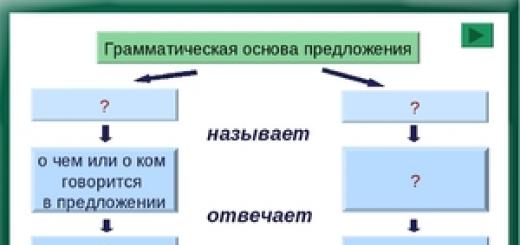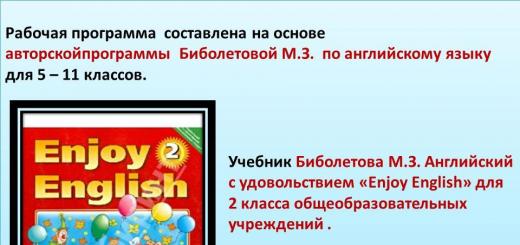Nobody is immune from mistakes. Beginners, even more so. But in some professions: an engineer, a doctor, a teacher, and others, mistakes can be costly. This article is an attempt to give some tips that may help you avoid these mistakes.
1. Self-doubt
As the saying goes, "You never get a second chance to make a first impression." Coming to a lesson for the first time, any tutor should make a positive impression, and a beginner - three times. Excessive excitement of a novice tutor (trembling hands and voice, obsessive movements) can make a strange impression, which he has nothing to smooth out yet, unlike a teacher with experience, some features of which, in principle, can be ignored.
Self-doubt and fear of not being liked by the student can make the tutor incorrectly build a line of behavior with him - with "flirting" and erasing the necessary distance in the relationship, which, in turn, will weaken his authority and allow the student to work at half strength. You can not go to the other extreme, putting on the mask of an evil teacher, forbidding and threatening. The mask will sooner or later fly off, exposing your true face, and this will allow the student to behave with you without any respect. Before you go to class, do a little exercise, take a deep breath, raise your head and smile at your reflection in the mirror. You have the knowledge to pass it on to others, the charm to please people, and the confidence to be yourself when people try to confuse you.
Do not be late for the lesson, but if you feel that you still won’t make it on time, be sure to call: no one will kill you for the very fact of being late, and with your call you will leave an impression at least polite person. Do not take on all the offers in a row: while your rate is low, traveling from one end of the city to the other, you will spend half the money you earn on transport, the time during which you could spend one more lesson, and the forces that you, of course, still will be needed.
2. The unsystematic nature of classes, the lack of expressed requirements
Even before the start of classes, you must form a certain set of rules that are common to everyone, and later supplement it with points that are constant for a particular student. For example, I strongly recommend that many students start several notebooks at the very first lesson: for writing down various kinds of theory, for verification work and for homework. Moreover, if you start them, you and your student should lead them at every lesson, and not when you accidentally remember about it. The student also needs to be accustomed to order: he must always know where his notebooks and books are, prepare them in advance and not lose them. The loss of a task, from the point of view of a negligent student, is very good reason its failure. Therefore, if you are studying not from textbooks, but from various handouts, recommend that the student create a special folder for them. Get yourself a diary or some kind of journal: it will be convenient to write down the material covered in it, homework and the mistakes of each student that you think should be worked on next time, because keeping all this information in your head, especially when you have a lot of students, is not so easy.
You must clearly communicate to the parents of the students the cost of classes, the days and times that suit you, the requirements for the child, your position regarding the cancellation and rescheduling of classes, and subsequently promptly inform parents about the bad behavior of children or their failure to complete homework, do not allow them to ride on themselves and say goodbye to them without regret when it starts to happen.
3. No lesson plan
It is a mistake to think that a good knowledge of the subject allows you not to prepare for the lesson. Especially if you are still at the very beginning of the journey. It is necessary to draw up a plan in which you indicate exactly what you will do in the lesson and how long it will take you to complete each item. But the plan cannot be treated formally. No matter how simple the material may seem to you, you need to study it very carefully, noting for yourself the ways of explaining it (the more the better: one is never enough), the possible difficulties of the students and ways to overcome them, the possible answers of the students to oral and written assignments. In addition, you should always be prepared for the fact that the student’s homework may not be done or not done completely, so instead of quickly checking it and starting new topic you'll have to do something else. Thus, the plan should provide for several options for the development of the lesson. The time to complete the points of the plan must be calculated in advance and distributed evenly, without delving into any one task to the detriment of the others. It is absolutely unacceptable to interrupt a student in the middle of an assignment simply because you yourself did not calculate how much time it would take him.
4. A single approach to different students
If you are a novice teacher, then you most likely have not yet formed an extensive methodical library, and for you now it is important not to be afraid to learn new things. Different students have different problems and different goals, so you should use different textbooks, and not one or two of the best known to you. Spend time searching for and pre-evaluating materials so that you don’t waste it on something that the student does not need at all. Subsequently, to facilitate the search for the desired material on a particular topic, it will be possible to compile a catalog of available resources.
5. Unwillingness to answer questions
Active, interested students are a real gift for any tutor, but a headache for a beginner. Surprises lie in wait at every step: for example, if you teach a foreign language and, while studying the topic “Professions”, ask a student who his parents work for, then please do not expect that everyone will turn out to be teachers, engineers or doctors. Teacher foreign language may encounter the problem of the student's specific interests that lie outside his linguistic competence, and therefore experience difficulties in translating a particular term (aircraft details, dance figures). In this case, it will not hurt you to get acquainted with one or another category of vocabulary, but inform the student that you cannot know everything and push him to independent discoveries. In turn, in a physics lesson, a student may have his own alternative view to the cause of some natural phenomena, and you must put yourself in his place in order to understand his point of view and clarify any questions.
6. Lack of patience with slow learners
On the other hand, students who are not so quick-thinking require great self-control from the tutor, because you can never yell at them, even if you really, really want to. Screaming and swearing frighten children, block their thought processes and give rise to complexes. Even if you have to explain the material in twenty-five different ways, before the student understands what is wanted from him, try to take it in a positive way. You are a super teacher if you know twenty-five ways to explain one topic, and Indian yogis would envy your patience! In addition, in the end, you will still achieve your goal, and the gratitude of such a student will be much higher.
A novice teacher, student or yesterday's student may be in some euphoria from obtaining new professional knowledge or a new status and sincerely desire to teach the student everything at once. With such generosity, he can do harm, not good, disrupt the student’s picture of the world and make him doubt the system of education used in this subject at this stage, especially when it comes to primary school. A second-grader, like his name, learns that it is impossible to divide by zero, but if the tutor casually informs him that this is not entirely true, then a misunderstanding with a school teacher and a decrease in grades are guaranteed to him. The other extreme is to avoid any complexities and terminology in general, even the one that the student must obviously know (“addition”, “adverb”, “diffusion”, “catalyst”), and use descriptive phrases instead of them so as not to overload his brain. It is necessary to firmly know the program of each class and adhere to it, making allowances for the depth of knowledge and abilities of each individual student.
Many of us are able to teach other people something. The desire to transfer knowledge usually encourages people to become teachers and work in schools or universities. But you can go the other way. For example, to become a private teacher - tutor.
A tutor is a rather free person, he does not have supervisors in the form of, say, a head teacher or a vice-rector. However, in such a seemingly free and creative work Like tutoring, there are all sorts of nuances to consider and prepare for when deciding to teach someone at home.
If you decide to become a tutor, first of all you need to place an ad.
Take care of the absolute literacy of the text, even if you are going to teach pottery, and not even the Russian language.
Indicate the area - this way you will weed out obviously unsuitable customers. It is advisable to write your name in full, and not just "Lalya" or "Anya". Add a last name, and the level of trust of potential customers will increase. It is also advisable to attach your own photo, and not a picture of a schoolboy sweating from zeal.
Now let's figure out what you need to be prepared for when you undertake to help someone study science, even if this science is mathematics in primary school. Let me give you an example of teaching students.
- Immediately explain to the parents of the students that you are not a magician and cannot instantly turn a three-year student into an excellent student. Or maybe you won’t scrape up a B in a year, because much, but far from everything, depends on the teacher. This must be stated clearly so that there are no complaints later. There are people who sincerely believe that since they paid the money, they bought knowledge at school as well.
- Not all students will like you, but they must like you otherwise they will just run away. Therefore, you - the free sculptor of the child's mind - will have to work hard to find an approach to each of them without showing negative emotions. Of course, it is necessary to suggest to a child if he does not do his homework or is late, the main thing is not to overdo it. Do not humiliate students, be friendly, joke, and they will respond in kind.
- Always keep in touch with your parents. Even if, in your opinion, the training is going smoothly, there is progress, parents may have a different opinion. In addition, it is not known what the child tells about you at home. Call, communicate, share thoughts, praise or scold the child (however, express dissatisfaction very tactfully). In general, let your parents see or hear you. They need to know that their money is not going into a dumb void.
- Prepare diligently for classes, make a plan. You do not need to rely on improvisation and your own pedagogical talent. In every case, discipline and consistency are important. In, perhaps, especially. Do not worry that you may not know something, do not understand the question. Tell the student to clarify this point. Of course, do not forget to sort out the issue after.
- If a student behaves very badly - whines, does not complete tasks, looks at his watch every two minutes, snaps and so on - say goodbye to him. You don't have to torture yourself. As a result, you can break loose on the child, and then you will fly from your parents. Why spoil the image? Politely explain to parents that the child may not yet be ready for individual lessons.
- Schoolchildren, especially younger age physically unable to sit through an hour of classes, and even tete-a-tete with a teacher. If a child, who is generally responsible and quick-witted, begins to yawn and slow down at the end, reduce the time of the lesson. Be sure to tell your parents about this, they most likely will not mind. Accordingly, the payment will decrease, but for us, the main thing is the result, isn't it?
- If after the lesson the student forgot to pay - do not hesitate to remind him. Don't think about what he will bring next. Suddenly will not bring? You never know: forgot, lost, spent on nuts. And at home they may not know about it.
- Get ready for what Your class schedule will be constantly changing, you will have to adapt to the students. Moreover, pupils will be late or skip classes altogether, often without warning. It is advisable to remind about the lesson the night before by calling or texting.
In tutoring, as in any other job, responsibility, diligence and focus on a good result are important. But, above all, a teacher is a creative profession, sometimes devastating even a significant reserve of spiritual and physical strength.
Respect your work and the work of your students. And remember: teaching someone is sometimes harder than learning.
Do you have experience as a tutor? Share it in the comments.
Nowadays, not all students who have graduated Pedagogical University or Vuz, according to the Russian language, go to work as teachers in the school. As a rule, prospects working at school are very difficult to achieve. Therefore, most students, after graduating from universities or universities, begin to try themselves in private tutor for Russian language.
Now we will analyze some points that a novice Russian tutor should know.
Difficulties of a beginner tutor.
The most difficult thing at the beginning of your journey will be to find the first student. To do this, you need to put ads on all available sources: newspapers, the Internet, and you can even post your ads on bus stops and poles. While the ads are doing their job, work on improving your skills on individual work with students. Read the literature you need for this or talk to more experienced Russian tutors language. After all, your further work will depend on the first student. If everything goes smoothly with the first student, then you will be recommended to friends and acquaintances, and this is the best advertisement.
The most important thing in tutoring is that your work should fire you up first. Only then will you be able to approach the work creatively, and then the student will be interested in studying in your classes.
In addition to reading USE manuals, you also need to read other literature that will help you find ways for new tasks. Also, for the best memorization of the material on the exam, use manuals with tables and diagrams. Such aids are better remembered by students.
It is better for beginner tutors to ask the student what topics they have gaps in. And even if the student says he knows this topic very well, it is better to dwell on this topic. As a rule, the student may not be aware of the depth of his knowledge.
These are just some of the tips to help you achieve a high level of tutoring. But also don't forget to improve yourself by reading the right books and attending tutoring webinars.
Tutoring is often done by university and school teachers to earn extra money. Why for some this work becomes an episodic occupation, while others are constantly in demand and do not look for students. Secrets of a great tutor.
Teachers at the university and teachers at school, especially young ones, often find themselves in tutoring. To become a tutor is not only to have additional income, it is also a free work schedule, the ability to choose the program and students yourself.
Only a few become private teachers, for most of them this is a combination with the main job. What is the secret of a successful tutor?
Professional skills
To become an excellent tutor, it is not enough to have a university graduate diploma. You must know your subject perfectly, be able to explain not only the theory, but also show how to implement it in practice, and it is better if the examples are from real life. Also, the signs of professionalism are:
Knowledge of the method of teaching the subject in a certain sequence and the ability to explain why the study is taking place in this sequence. Use of quality textbooks. The tutor must have his own set teaching aids, which he considers the best - well-written, structured and clearly demonstrating theoretical calculations. You must not only choose a textbook for teaching, but also be able to explain to the student why you chose this textbook.
Providing additional materials. Agree, you can read the textbook yourself, there is no need to hire a tutor for this, so a good teacher always provides students additional materials, uses high technologies in teaching and makes educational process more interactive.
Application of a fair system of knowledge assessment, readiness to justify this or that assessment. The work of the tutor is also evaluated, but already by the level of knowledge of his student. You can find out the effectiveness of your program by comparing the student's initial level with the current one or by asking parents, colleagues, and the student about the progress.
Constant professional growth of the tutor. Each of us has something to learn, so successful tutor regularly attends refresher courses, trainings and seminars on his subject and teaching methods. It will also be useful to monitor the events taking place in the world related to your field of knowledge.
Personal qualities
Not every graduate pedagogical university able to become a good tutor. To do this, you need to have a set of qualities that allow you to build the educational process most effectively. The most important quality is the ability to find mutual language with the student, to establish emotional contact with him. Without understanding the reaction to the training material, you will not be able to make adjustments to the program if necessary. Contact with the student allows you to increase his interest in the subject being studied, and hence the effectiveness of training.
Punctuality and consistency are also important for a tutor. The beginning and end of classes should always be at the same time, checking the work done - just in time, and the materials for the lesson are always ready in advance. Well, if the tutor thinks systematically, this will allow him to form the structure of classes and in the process of learning not to jump from one to another, but to go from simple to complex, always remembering the ultimate goal.
How to become a tutor
If you have a desire to become a mentor, to teach someone what you know yourself, then you are ready to become a tutor. To be successful, you need to follow a series of steps:
- Choose your specialization. Math analysis and solution differential equations- fundamentally different directions, although one is part of the other.
- Treat everyone individually. Do not forget that before you is not a stream of students, but one specific person, to adapt to which is now your job.
- Always conduct an assessment at the beginning of the course. This way you can find out if the student is ready for your program, or if it needs to be slightly expanded on the foundations that the student does not know. Make the learning process interactive - encourage the student to ask questions and express their opinion, even if it does not coincide with yours or generally accepted.
- At the end of the course, ask the student to evaluate the program and your effectiveness as a teacher. This will allow you to improve your skills, and at the same time you will receive recommendations for working with the following clients.
The demand for the services of tutors is great, and in order to become not one of many, but the best in your field, treat it responsibly. Raise the level of knowledge of pupils, students and adults, improve yourself and your educational program then thanks to you modern society will get a little better.
The popularity of tutoring is due to the fact that school program became more complex, the number of students increased. Teachers and lecturers are thinking about providing tutoring services. But there is competition here, and according to the laws of the market, experienced specialists force out newcomers. The question arises: can a beginner in this field compete with a guru? How to get started? Consider in the article.
A tutor without experience is not uncommon, but if there is a desire to work and give schoolchildren, applicants and students knowledge, then go ahead - open up new opportunities. Here are some tips that will help you turn from a “teapot” into the greatest master of your craft and earn money.
 Let's not talk about mandatory teacher education and experience in the field of teaching children, in our case, this is an axiom. Consider how to start working as a tutor with no experience, and what is required for this.
Let's not talk about mandatory teacher education and experience in the field of teaching children, in our case, this is an axiom. Consider how to start working as a tutor with no experience, and what is required for this. We looked at how to start working as a tutor with no experience. In fact, there are no difficulties here: it requires patience, love for your work and a desire to cope with your duties perfectly well. With the right approach, very soon you will gain skills and experience and join the ranks of professional tutors who know how to earn and be in demand.










